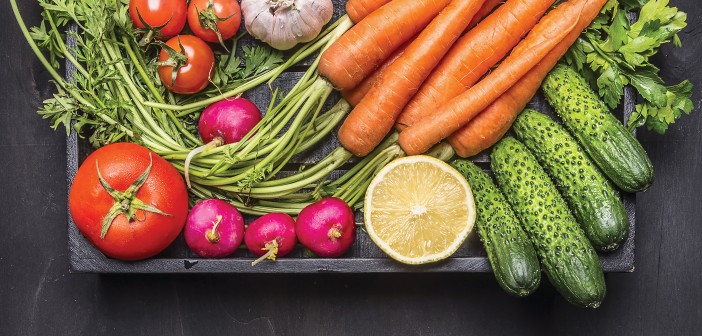What are GMOs? According to Green America, a national non-profit dedicated to growing the green economy for people and the planet, Genetically Modified Organisms (GMOs) are plants or animals created through the gene-splicing techniques of biotechnology (also called genetic engineering, or GE). This experimental technology merges DNA from different species, creating unstable combinations of plant, animal, bacterial and viral genes that cannot occur in nature or in traditional crossbreeding. More and more foods and products are being genetically engineered or contain genetically-engineered ingredients.
These questions are begging to be answered: Are genetically modified foods good or bad for you? Should GMO foods always be labeled so consumers are aware that the product contains genetically modified ingredients?
According to GreenAmerica.org, more and more studies point to the idea that there’s grave cause for concern about the health effects of consuming GMOs and the chemicals they are sprayed with; some health effects include food allergies, irritable bowels, organ damage and cancer. However, Battelle.org says: “In the United States, genetically modified food products must be rigorously tested before they can be sold – far more so than conventionally bred crops. The testing process can take seven to ten years, and must include evaluations of potential risks to humans and livestock, as well as potential risks to wildlife and the environment.”
Clinton Peck, owner of Bushels & Peck’s Produce at the Flint Farmers’ Market, says he can only give his own personal opinion on the issue. “When it comes to modifying our food, I think there is good and bad. The ‘bad’ is simply knowing that there could be chemicals or other things in genetically modified food that we wouldn’t necessarily want to put in our bodies.” The good? “Fruits and vegetables have been modified for years, which has provided greater crop yields … and that’s something we need,” he says. “You can’t always believe what the media puts out there.” Bushels & Peck’s Produce offers a diverse selection of exotic fruits, vegetables and spices from around the world. They also carry fresh local Michigan produce when in season. In the summer, when all of the produce is local, he knows it is not genetically modified. He does receive produce from other states, some of which is genetically modified. And in many cases, he has no way of knowing it.
The subject of labeling food that contains GMOs has been in the news after the U.S. Senate recently failed to reach the required vote to proceed on Senator Pat Roberts’ anti-GMO labeling bill. According to a recent press release, the Deny Americans the Right to Know (DARK) Act introduced by Senator Roberts would block states from issuing mandatory labeling laws for foods with GMOs. The press release also states that Tom Colicchio, Food Policy Action co-founder and chef says, “The Senate will now have to work to craft a bipartisan, mandatory on-pack GMO labeling bill that doesn’t demonize science and gives consumers the information they demand.” Colicchio recently delivered a letter to the Senate signed by over 4,000 chefs asking their Senators to reject the newest version of the DARK Act and support mandatory labeling of GMO foods.
Simply Salads at the Flint Farmers’ Market sells fresh vegetables, in-season fruit, maple syrup and honey, eggs, vinaigrettes, salsas and herbs. According to Jim Kneebone, co-owner, all of the produce and products they sell are organic, with the exception of classic free-range eggs. Their motto is “Local food for local people by local growers.” “Everything we sell is non-GMO,” Jim reports. When asked if genetically modified food is good for you, he said, “In a starving world, if it was all I had to eat, I would eat it.” This has become a trend for many people (but not all) who want to know if the food they purchase has been genetically altered. These same people want fresh, local products. Jim looks at the big picture, however, and how the number of farmers is dwindling in an increasingly populated world. “My fear is starvation more than GMOs,” he says. Jim also says the use of genetically modified food in the U.S. is literally going to come down to a matter of choice. “People in this country expect food to be cheap. When we change our mentality and expect quality food, that is when a change will occur.”
Common crops that are genetically modified:
- Alfalfa
- Canola
- Corn
- Cotton
- Papaya
- Soy
- Sugar Beets
- Yellow Summer Squash
- Zucchini
Also high-risk:
Animal Products (milk, meat, eggs, honey, etc.) because of contamination in feed.
Source: GreenAmerica.org








